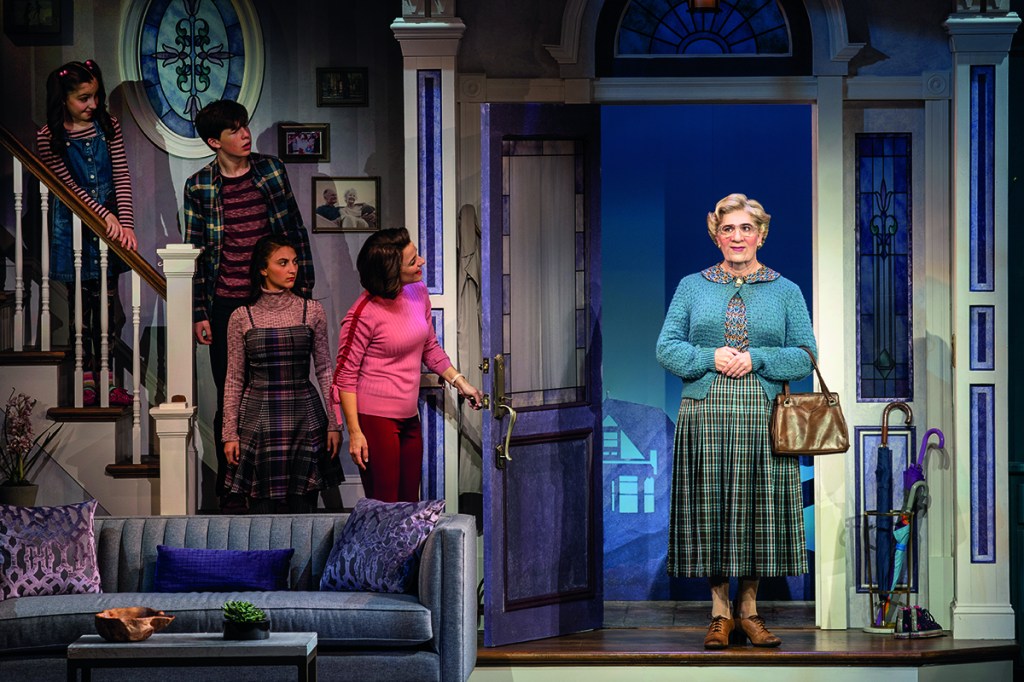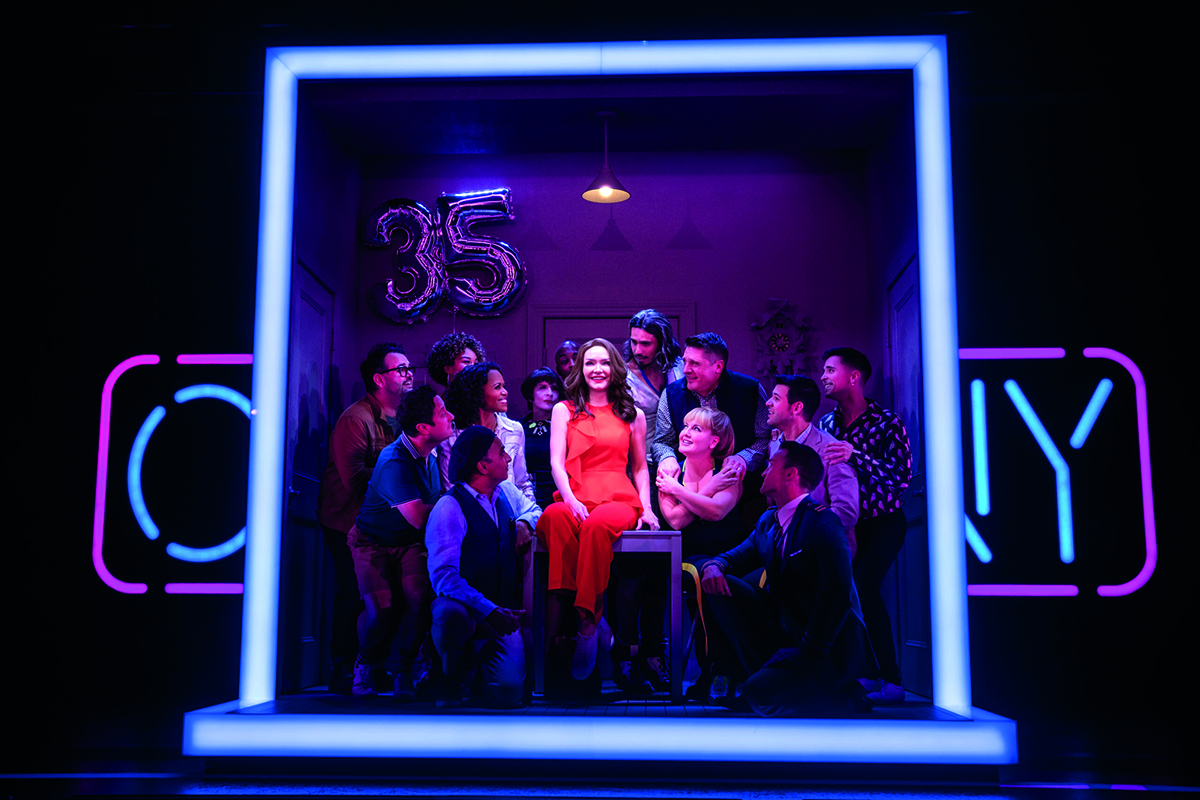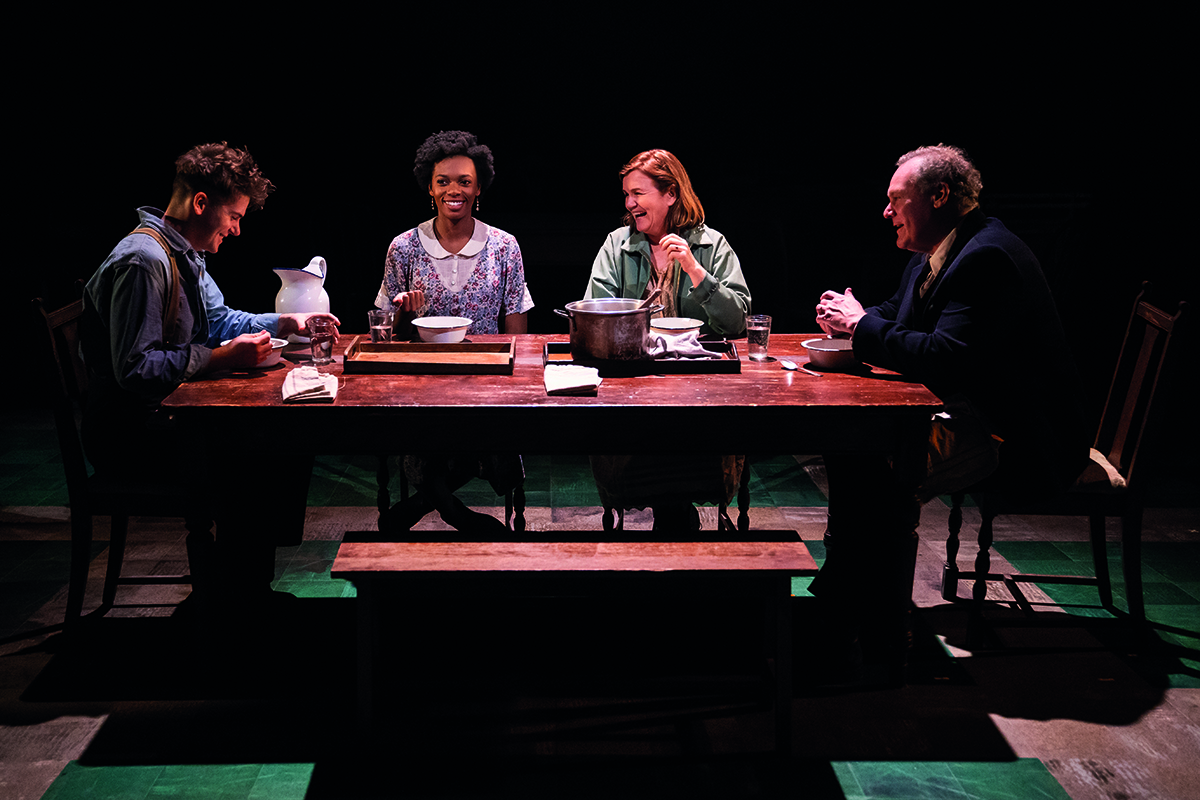Was Mrs. Doubtfire a children’s movie? You might think so after seeing the new musical version, which opened at the Stephen Sondheim Theatre in early December. The 1993 Robin Williams classic hails from that glorious era of made-to-end-up-on-TV blockbusters at the end of the twentieth century — the movies that so many millennials first came to know piecemeal, catching a scene or two with dad while mom clucked disappointment from the other room.
In films like these, each scene is designed to stand on its own, which may explain why the creators of the Doubtfire musical thought they could drop so many of them, barely laundered, right onto the stage. Worse, that laundering is all bleach, no detergent — it flatters grown-ups to think they could bring kids along, but the musical is so stale that it’d likely ruin the movie for them, too. If you already know the movie, the viewing experience is something like being told your lost dog has been found, only to have its taxidermied carcass dropped on your lap.
The gender-bending plot is a throwback to ancient Roman comedy, where the assumption of an outlandishly false identity is so often the source of dramatic irony. Daniel Hillard (Rob McClure) is an out-of-work actor beloved by his kids (Analise Scarpaci, Jake Ryan Flynn and Avery Sell) but insufferable to his high-powered executive wife (Jenn Gambatese), who barely has time to look after three children, let alone an adult-sized infant. After the inevitable divorce, Daniel loses the custody battle, and he suffers a further indignity when his wife opts to hire a nanny rather than let their kids spend more time with him.
Determined, he enlists his gay brother (Brad Oscar) and his brother’s partner (J. Harrison Ghee), professional makeup artists, to transform him into an old British widow so he can apply for the post. He gets it, and despite the arrival of his wife’s new beau (Mark Evans), Daniel reasserts his place in the family by succeeding in drag where he failed as a dad. In other words, themes that are seriously unfunny — divorce, the courts, disappointing your kids — are made palatable by tropes hilarious to almost everyone, namely cuckoldry and drag.
I say “almost” because cuckoldry and drag can be unfunny to those immediately involved — cuckoldry for obvious reasons and drag when it’s used to humiliate the wearer. But to everyone else, they’re hilarious. This is hypocritical but human. The Romans ranked thespians and prostitutes in the same social class.
Yet while the stage affords a player near-direct access to an audience, in film, that access is tightly controlled by the director and his team. A broad ignorance of that difference is what doomed this musical adaptation from the outset, certainly more than the uneven dialogue or the tepid musical numbers from Karey and Wayne Kirkpatrick. (Capable direction by Jerry Zaks and strong choreography by Lorin Latarro saved a few of these, like “Easy Peasy,” which visualizes a YouTube cooking video as an ensemble performance, and “About Time,” which is a thoroughly impressive loop-machine-assisted solo performance by McClure.)
The tension between the actor and his medium is a central feature of the Doubtfire premise. In the opening scene, Daniel, a voice actor, storms out of a recording session after the manager berates him for improvising an anti-smoking diatribe. His imprudent moral sense, which holds the keys to his improvisational brilliance, is at odds with the expectations of cinema, which subjugates personality to technological wizardry. A gradual reconciliation of these formal elements underpins the plot: in the same way that Daniel learns to manage his creative impulses as Mrs. Doubtfire, Williams’s unruly and brilliant improvisations were recorded, culled and edited to fit into the final film product.
Broadway musicals value the slick and cohesive, too, but there are no second takes in theater. Quality control starts with the actors, not the director or the techies behind the curtain, and unruly spontaneity takes a backseat to practiced outlandishness. The spry and dogged McClure has this quality in spades, but his achievement tanks the plot: the genius of improvisation has been morphed into an over-produced and one-dimensional role peppered with recycled Doubtfire lines, which were probably never written down in the first place. It’s like catching a klieg light in a bottle.
Where Williams’s rangy improvisations admitted modesty and moral courage, very little about this Doubtfire suggests he’d rather be doing anything than hamming it up on stage, the same way night after night. This is entertaining at first, but as the show grinds along, the indefatigable Daniel becomes a caricature of himself. At the movie’s conclusion, when Mrs. Doubtfire lands a gig hosting an educational television show for children, that undertaking is endowed with a formal and moral purpose. On the stage, it plays as a preening, self-indulgent pet project. It’s a hard sell for Drag Queen Story Time.
This article was originally published in The Spectator’s February 2022 World edition.

























